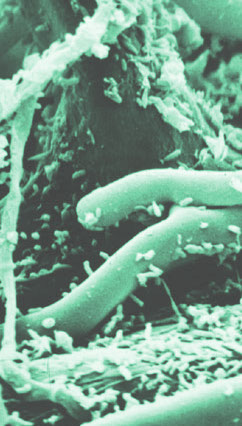Study highlights missing biome
 As our knowledge of the gut microbiome expands, researchers say the reproductive biome may be missing out.
As our knowledge of the gut microbiome expands, researchers say the reproductive biome may be missing out.
Most research has focused on the oral, skin, and gut microbiomes, but bacteria, viruses, and fungi living within our reproductive systems may affect important human factors like sperm quality, fertilisation, embryo implantation, and other aspects of conception and reproduction.
But according to a new review, little is known about the reproductive microbiome.
While research has begun to link alterations in the vaginal microbiome to adverse pregnancy outcomes in humans, it is unclear how the male reproductive microbiome affects fertility and reproductive success, according to first author Melissah Rowe, an evolutionary ecologist who studies reproductive biology and behaviour at the Netherlands Institute of Ecology.
“This is surprising, because research has shown that bacteria can damage sperm form and function, and that damaged sperm can contribute to pregnancy failure,” Dr Rowe says.
Many major questions remain. Researchers are intrigued by how some microbes benefit one sex or species while harming another. For example, Lactobacilllus - associated with a healthy vaginal microbiome in women and high-quality semen in men - seems to negatively affect sperm-swimming speed in chickens.
In fact, there are quite a few examples of microbes affecting sexual health and fertility across the animal kingdom:
- In human men, certain species of bacteria are associated with higher- or lower-quality sperm samples, while higher quantities of bacteria are more prevalent in semen samples from infertile than fertile men
- A study of primates showed that vaginal microbiomes are more diverse in species in which females have more than one sexual partner. Similar findings have been reported in deer mice and in common lizards
- Male mallards with more colourful bills produce semen better able to kill bacteria, leading researchers to speculate that female mallards sometimes choose partners with more colourful bills to reduce the risk of STDs, minimise disruption to their own microbiome, and ensure they receive high quality sperm
- Male bedbugs inseminate a female by piercing her abdomen. Recent work indicates that females, which can die from infections caused by microbes on the male copulatory organ, ramp up their immunological defences ahead of mating
- In black garden ants, the testes of virgin males appear to favour microbial growth while the sperm-storage organs of virgin females strongly inhibit microbial growth
- Male red junglefowl, a wild ancestor of the domestic chicken, produce more proteins with antimicrobial effects in their ejaculate over successive matings - possibly to better protect dwindling numbers of sperm







 Print
Print